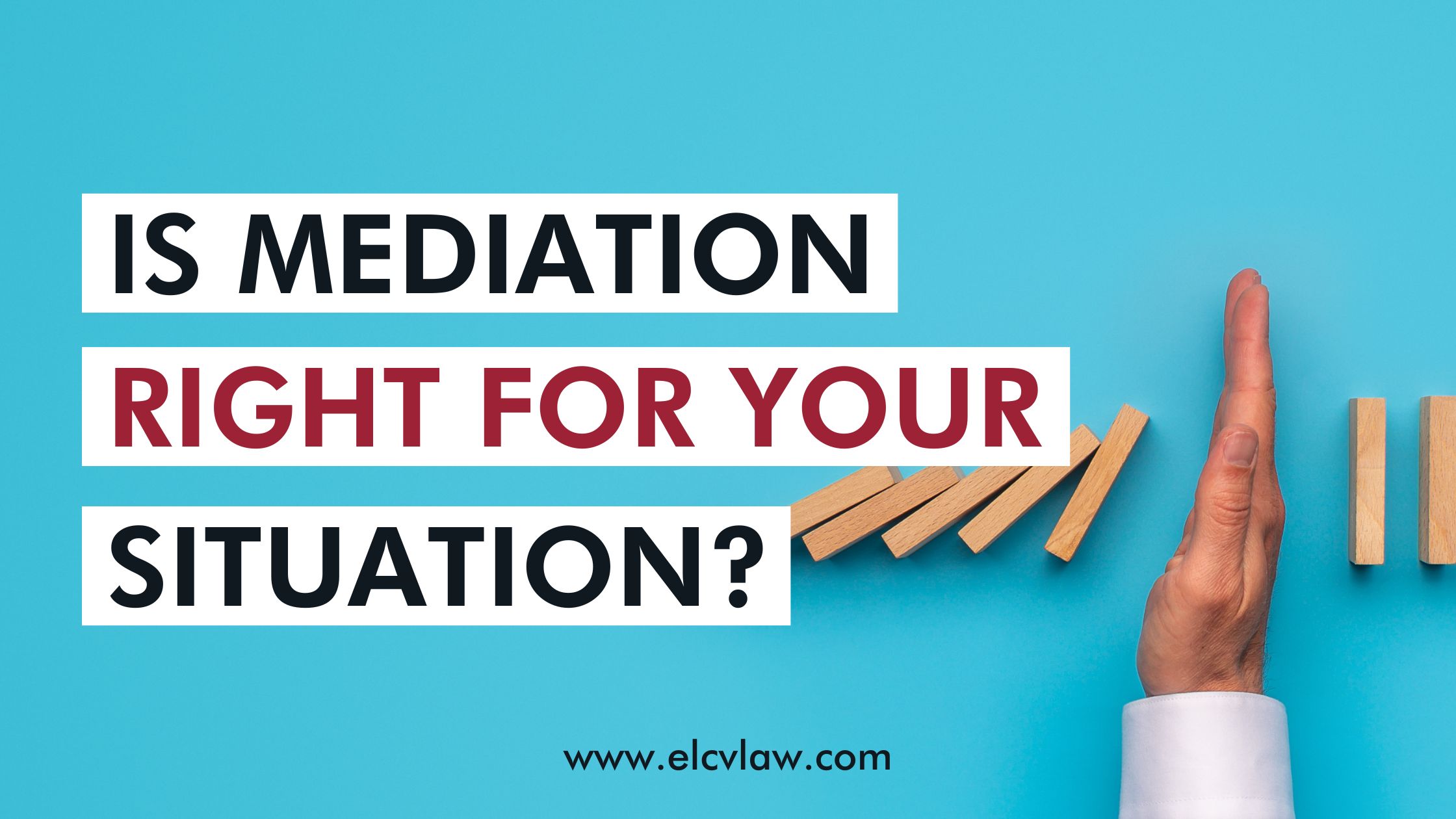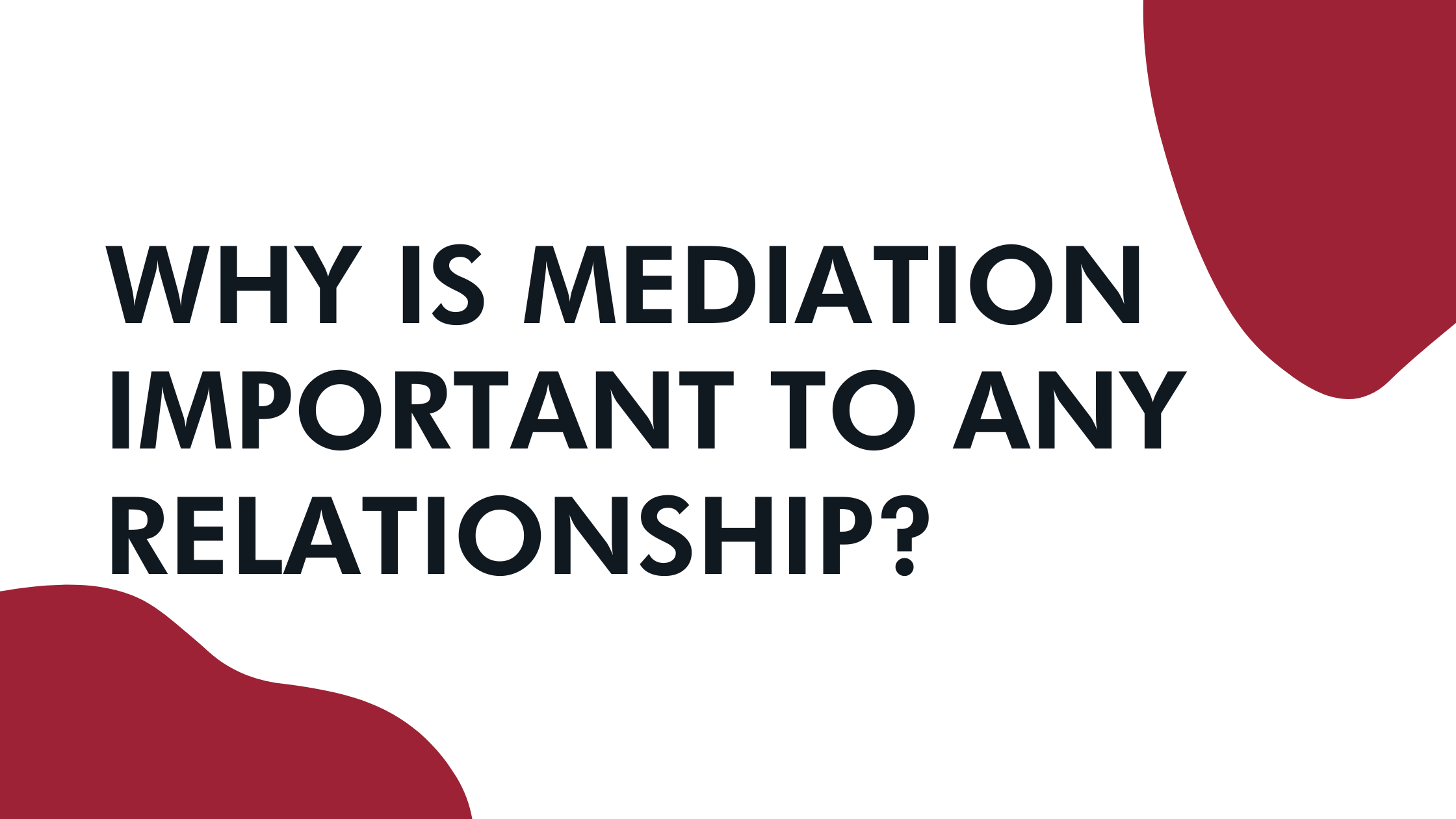Is Mediation Right for Your Situation?
Is Mediation Right for Your Situation?

While every divorce is unique, in Arizona divorce mediation is generally the preferred divorce process. It is a more amicable and affordable alternative to battling your spouse in court. In addition, you may use mediation to solve all divorce-related issues, including division of assets, custody of children, etc.
The process involves a family law attorney to keep the peace and ensure fair negotiations. However, the question is not whether mediation is a beneficial process. Instead, the question is whether mediation is a good fit for you. You can read more about why you should consider mediation here.
Do You Have to Get Along with the Other Person?
While you do not have to be best friends with your spouse to have a successful mediation session, it can certainly help. Many types of mediation are generally used depending on how well you and your spouse get along. The main two types of mediation include a shuttle or a facilitative session.
Shuttle Mediation: These mediation sessions are better for couples who cannot work together. This form includes if the couple argues more than they can calmly talk or if they have trouble listening to one another. The participants would have their own rooms and their attorneys in this case. The attorneys would then move between the rooms to negotiate on behalf of the participants. Both participants can either share a mediator or have their own. However, it can be beneficial for each participant to have their own attorney since they can help make decisions or evaluate offers.
Facilitative mediation: In this type of mediation session, the participants are directly involved in the negotiations. These sessions are participant-driven, meaning the participants control the outcome. The mediator will help guide the discussion to important topics and offer expertise on various subjects. Still, the participants will ultimately determine the agreements. Once the mediation is complete, the family attorney will draw up the agreement stating the decisions made during the session.
Can Mediation Improve Our Communication?
Yes! Although mediation should never be considered a form of therapy, mediation can help improve communication. When couples begin the discussion during mediation, the mediator will help ensure all communication goes smoothly. There are three different mediation styles: the transformative, the evaluative, and the facilitative.
The transformative style is where the mediator empowers each participant to share their thoughts and respond kindly to one another. Their goal is to help each person understand the motive behind the other’s communication.
The evaluative style is where the mediator removes emotions from the equation and sticks to the fact. The mediator will use current laws to help the couple resolve their disputes. This style is better for couples who seem unable to find a middle ground and would rather have a third party decide.
The facilitative style, also described above, is where the mediator acts as a third party and makes sure all topics discussed and both participants stay on track. The mediator is considered a neutral party.
Who is Not a Good Fit For Mediation?
Partners with a significant imbalance of power may not be suitable for mediation. The dominant partner will likely bully the partner into agreeing to uncomfortable terms. Other couples that would not be a good fit include those that experience ongoing domestic violence. Mediation will not be viable if there is a worry that the other spouse will get aggressive. Instead, they would have to turn toward the traditional divorce process.
Who is a Good Fit For Mediation?
Disclaimer: The content in this article is for informational purposes only and should not take the place of actual legal advice. Not all circumstances are the same, and it is suggested that you should seek legal counsel if you need assistance in any of these areas.










